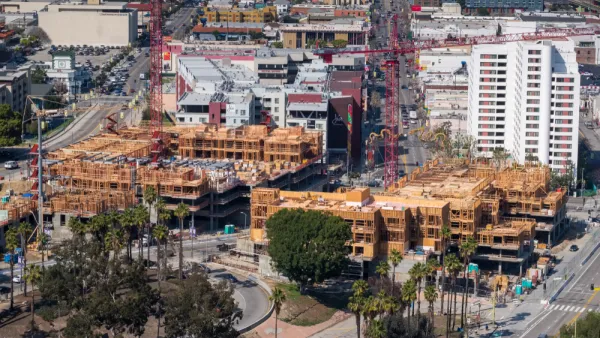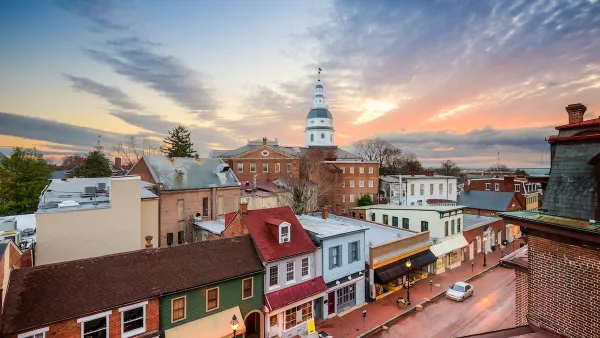A conference held in London last Tuesday, called "Planet Under Pressure," provided a forum to begin to answer the question, reports Roxanne Palmer.
With the world's population increasing by an estimated 1 million additional people each week for the next 38 years, its imperative that public leaders and planners provide spaces for the growing population in the most socially and environmentally sensitive ways possible. And, as Palmer notes, experts at the conference agreed that the American model of urban sprawl must be resisted.
According to Karen Seto, a professor of urban environment at Yale University. "The North American suburb has gone global, and car-dependent urban developments are more and more the norm. The way cities have grown since World War II is neither socially [nor] environmentally sustainable."
According to Palmer, conference attendees agreed that efficiency and density will be keys to solving the population growth crisis.
"That means more planning and investment in public infrastructure, including mass transit, and land-use zoning and building standards that encourage multiple uses of space. Buildings and land are only part of the equation, though; denser cities will require efficient mechanisms to combat poverty, crime and threats to public health, the scientists say."
FULL STORY: Denser, More Efficient Cities Key To Coping With Population Explosion: Experts

National Parks Layoffs Will Cause Communities to Lose Billions
Thousands of essential park workers were laid off this week, just before the busy spring break season.

Retro-silient?: America’s First “Eco-burb,” The Woodlands Turns 50
A master-planned community north of Houston offers lessons on green infrastructure and resilient design, but falls short of its founder’s lofty affordability and walkability goals.

Delivering for America Plan Will Downgrade Mail Service in at Least 49.5 Percent of Zip Codes
Republican and Democrat lawmakers criticize the plan for its disproportionate negative impact on rural communities.

Test News Post 1
This is a summary

Test News Headline 46
Test for the image on the front page.

Balancing Bombs and Butterflies: How the National Guard Protects a Rare Species
The National Guard at Fort Indiantown Gap uses GIS technology and land management strategies to balance military training with conservation efforts, ensuring the survival of the rare eastern regal fritillary butterfly.
Urban Design for Planners 1: Software Tools
This six-course series explores essential urban design concepts using open source software and equips planners with the tools they need to participate fully in the urban design process.
Planning for Universal Design
Learn the tools for implementing Universal Design in planning regulations.
EMC Planning Group, Inc.
Planetizen
Planetizen
Mpact (formerly Rail~Volution)
Great Falls Development Authority, Inc.
HUDs Office of Policy Development and Research
NYU Wagner Graduate School of Public Service





























